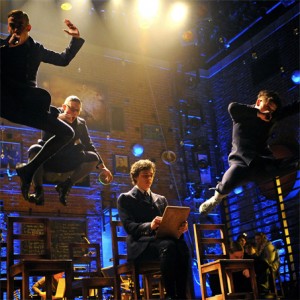Knight Hooson looks at the origins and history of Spring Awakening and how it made the journey into London's West End.

Broadway may never be the same!' says the New York Times.
Prologue – Germany
Frank Wedekind is born in Hanover in 1864 and writes his first play, Spring Awakening – A Children's Tragedy, in 1891. Knowing that a realistic play about the blooming sexuality of adolescents which includes masturbation, abortion, rape and suicide would not meet favour with the German censors, Wedekind arranges to have the play published privately.
In 1906 a heavily-censored version of Spring Awakening opens in Berlin directed by the great German director Max Reinhardt and runs for over 600 performances.
Act 1 – New York | Scene 1- Off-Broadway
Steven Sater (book and lyrics) was long a fan of Spring Awakening. To him the idea of parents suffocating their children with their middle-class values was as relevant in the 1990's as it had been in the 1890's. After the shootings at Columbine High School (April 20, 1999), a story of teenagers acting out against oppression suddenly seemed even more relevant.
In the preface to their playscript, Sater writes, “Wedekind's play is full of the unheard, anguished cries of young people. It struck me that pop music – rock music – is the exact place that adolescents for the last few generations have found release from, and expression of, that same mute pain.”
Sater teamed up with Duncan Sheik (a Grammy Award- nominated singer-songwriter) and Michael Mayer (a Tony Award-nominated director) to bring an indie-rock sensibility to a 19th century play in order to unleash its anguish for a modern teenage audience.
They spent eight years working and reworking the piece, finding a way that felt right for them to make the piece sing. Through many set-backs, they stayed true to their vision until the piece finally premiered Off-Broadway at the Atlantic Theater Company in June 2006.
Read the full published article in issue 2 of The Drama Student Magazine.
Be the first to comment